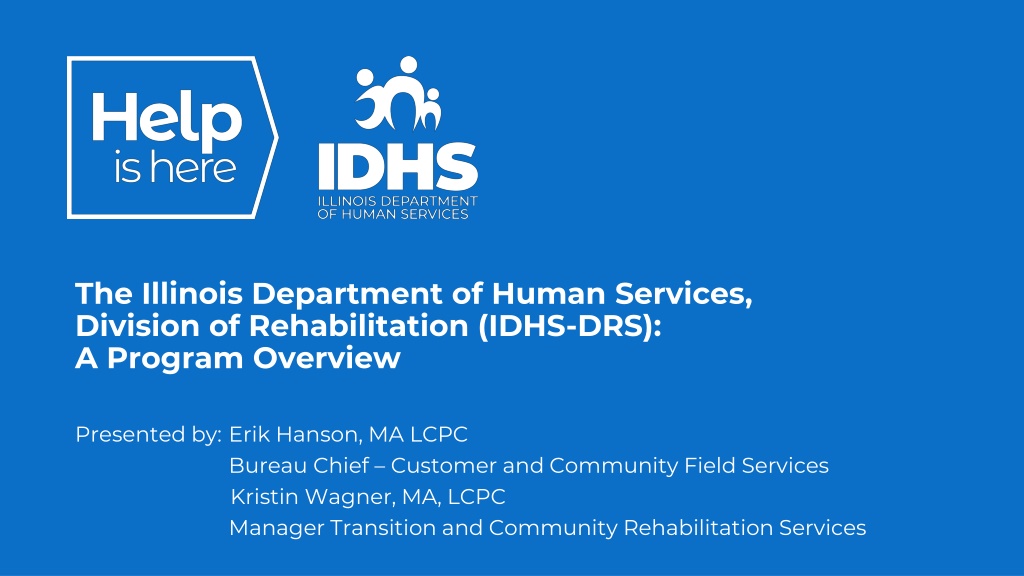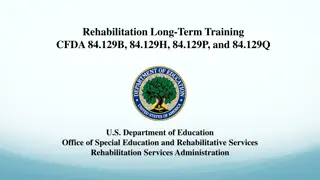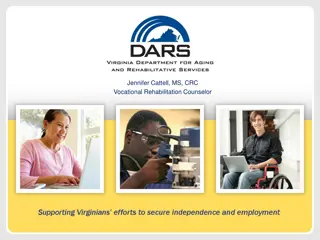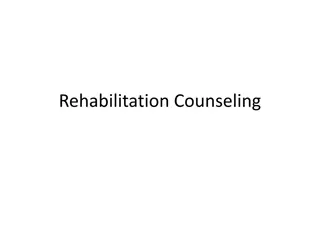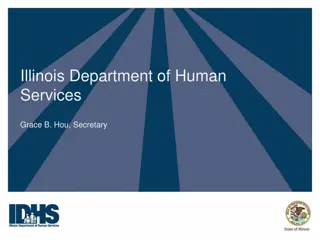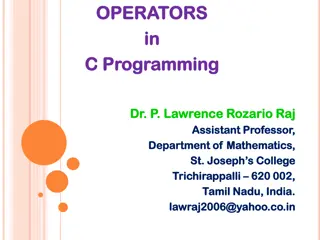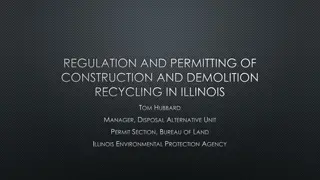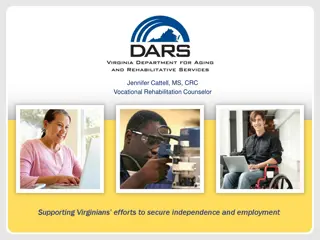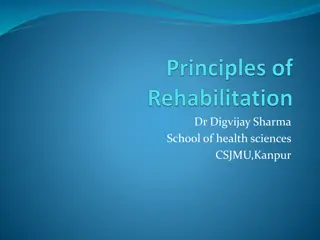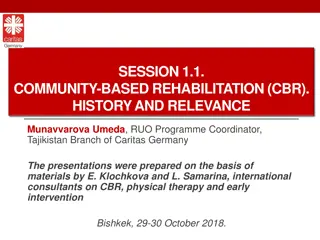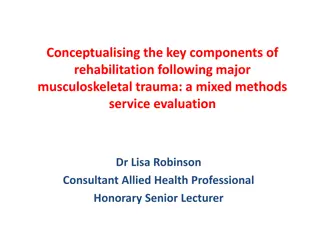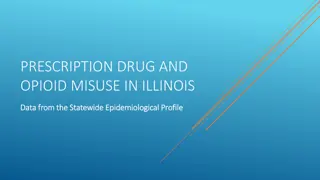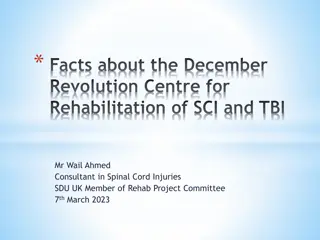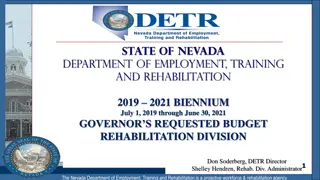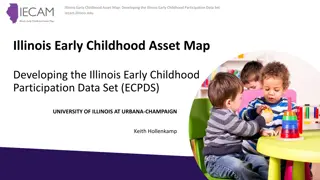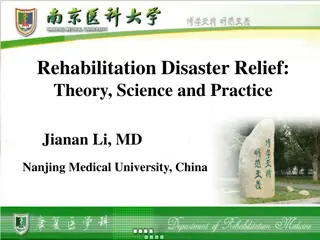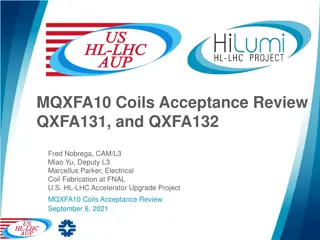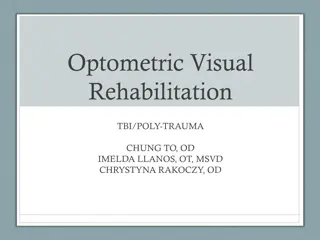Understanding the Illinois Department of Human Services Division of Rehabilitation (IDHS-DRS)
The Illinois Department of Human Services Division of Rehabilitation (IDHS-DRS) serves individuals with disabilities by providing support for employment, education, and independent living opportunities. The program components include various bureaus that cater to different aspects of disability services. With field offices and regions across the state, IDHS-DRS aims to empower individuals with disabilities to achieve full community participation.
Download Presentation

Please find below an Image/Link to download the presentation.
The content on the website is provided AS IS for your information and personal use only. It may not be sold, licensed, or shared on other websites without obtaining consent from the author. Download presentation by click this link. If you encounter any issues during the download, it is possible that the publisher has removed the file from their server.
E N D
Presentation Transcript
The Illinois Department of Human Services, Division of Rehabilitation (IDHS-DRS): A Program Overview Presented by: Erik Hanson, MA LCPC Bureau Chief Customer and Community Field Services Kristin Wagner, MA, LCPC Manager Transition and Community Rehabilitation Services
DHS Configuration: : DD Developmental Disabilities FCS Family and Community Services (FCRC) DMH Division of Mental Health DRS Division of Rehabilitation Services (previously called DORS or ORS) SUPR Substance Use Prevention & Recovery (formerly DASA) Early Childhood
DRS Mission DHS Division of Rehabilitation Services (DRS) is the state s lead agency serving individuals with disabilities. DRS works in partnership with people with disabilities and their families to assist them in making informed choices to achieve full community participation through employment, education and independent living opportunities.
DRS Program Components Bureau of Customer and Community Field Services (BCCFS) Bureau of Home and Community Based Supports (BHCBS) Bureau of Customer and Community Blind Services (BCCBS) Bureau of Disability Determination Services (BDDS) Bureau of Engagement and Support Services (BESS) Bureau of Planning and Strategic Development (BPSD) Bureau of Support Services (BOSS) Chief of Staff Policy and Legislation
Bureau of Customer and Community Field Services Assist persons with disabilities in achieving independent living and self-sufficiency through employment.
DRS Field Offices and Regions 6 regions 46 field offices 1 North - Cook County - 6 offices 1 South Cook County - 7 2 - Chicago Suburbs - 10 offices 3 - Rock Island to Danville - 8 offices 4 - Quincy to Mattoon - 6 offices 5 Southern Illinois- 9 offices
DRS Field Office Structure Case Coordinators Rehab Counselor Aides Orientation and Mobility Instructors Transition Specialists and Assistants Rehabilitation Services Advisors (HSP and VR) Counselors Office Supervisors (RSS) Assistant Bureau Chiefs
Overview of VR Process Referral Walk in, call, web, email. Interest in pursuing DRS services in terms of an employment outcome. Application- referral made, initial interview conducted, gather documentation to determine eligibility. Certification- determine that applicant meets eligibility requirements and continue with services. Individualized Plan for Employment - provide counseling and guidance, information and referral, training, restorative and placement. Placement- applicant achieves stability in employment for a minimum of 90 days.
VR Referral Walk in Call Web Email Interest in pursuing DRS Services in terms of achieving an employment outcome Timeframe officially recorded the date it is made, moved to application within 30 days.
VR Application Process Referral made, Initial interview conducted, Gather documentation to determine eligibility for DRS services, your documentation can be used. This can expedite the process! No determination made at this point on services that will be provided Timeframe- within 30 days of referral.
Eligibility Determination for VR Services Individual has a physical or mental impairment that constitutes or results in a substantial impediment to any employment Individual requires multiple VR Services to prepare for, secure, retain or regain employment Individual is presumed to be able to benefit form VR services in terms of an employment outcome Individual must want to go to work No Order of Selection/ wait list
Functional Limitation Evaluation All customers must participate in this process Based on a review of medical/psychiatric and other types of documentation. Based on individual s ability to participate in major life activities, ( i.e.. community, home, school, and work) as they impact an employment outcome. Functional Capacities include: mobility, self-care, self-direction, work skills, work tolerance, interpersonal skills, and communication. Timeframe - within 60 days of the completed application
Trial Work Trial work is a process required under federal (34 CFR 361.42) and state (89 Ill Admin Code Sec. 553.31) VR regulations. The purpose of trial work is to determine whether an individual with a disability can benefit from participation in VR services. DRS regulations require that DRS presumes that an applicant can benefit from VR services, and in most situations nearly all applicants are certified as eligible. Trial work is used in the rare situation where an individual has a disability so significant, that it is uncertain whether he or she has a reasonable likelihood of achieving a competitive integrated employment outcome. In these unusual circumstances, the individual must be provided with one or more trial work experiences in realistic work situations. The idea is that trial work experiences will give the individual the opportunity to prove that they can, or cannot, perform work that would lead to a competitive integrated employment outcome. There are two possible outcomes of trial work: it is determined that an individual can benefit from VR services, he or she is certified as eligible, and an IPE is developed; it is determined that the individual, due to the severity of his or her disability, cannot benefit from VR services in terms of achieving an employment outcome. In the latter case, the individual is certified as ineligible, and the case is closed. The individual has the right to appeal this decision. The individual can then seek employment services thru the IDHS Division of Developmental Disabilities. In CY2022, only six individuals were asked to engage in Trial Work, and none were found unable to benefit from VR services
Individualized Plan for Employment Counseling and Guidance - Career planning with customer Information and Referral - Referral to a different provider agency Training - Post Secondary Training Restorative Service - Psychiatric or Medical Procedures Placement/Job Retention - Employment connections Timeframe within 90 days of determining eligibility
WIOA and the 5 Required Services Job Exploration Counseling Work-Based Learning Experience Counseling on Post-Secondary Education Workplace Readiness Training to Develop Social Skills and Independent Living Instruction on Self-Advocacy All Transition related contracts are based on these five required services.
How are PTS Provided? Statewide there are a variety of ways that the WIOA Required Service are provided to both students with a disability and youth with a disability. Contracts with school districts/cooperatives- STEP and PTS-VR (only with Chicago Public Schools) contracts Contracts with CIL s and CRP s- Fast Track Transition, Project SEARCH, PTS-VR-CRP (special to Chicago Public Schools students), POS-Youth, and Youth Initiative contracts DRS Counselors who provide direct services- Transition Non-STEP.
Who Can Participate in Transition Services? Students with a disability according to WIOA. For most Transition related contracts, students between the ages of 14 through 22. For those participating in Fast Track Transition, services may begin at 14. Individuals with 504 Plans, IEP, medical documentation from physician, social and/or psych reports, audiology testing, low vision exam, or other documentation demonstrating disability and functional limitations. Includes any medical, physical, mental, hearing, or vision impairment.
Transition Services Benefits and Skills Gained Exploration of career options and what works best for their unique needs. Participation leads to an increased understanding of how gaining PTS better prepares the student for employment. Skills needed to transition to life after high school are achieved and built on each year. Work-Based learning experiences provide opportunities to learn and grow personally and in the workforce. Increased confidence and the ability to interact with others. Gaining knowledge of adult services, work, and learning to live independently.
Post Secondary Education and Training Major component of employability Available to DRS customers Must have an employment outcome that requires post secondary education or training that has not yet been achieved Must leads to a degree, certificate or other industry recognized credential
Types of Post Secondary Training DRS Supports Support can be provided at various levels, both public and private, in state and out of state institutions Associates level Community College Initiative (CCI) Undergraduate and, Advanced Degrees
Services Available to DRS Customers in Post Secondary Education and Training Assistive technology Career counseling and guidance Reasonable accommodations Job placement services once training is complete Financial support with the following: Tuition and fees Books and supplies Room and board Transportation *these above items may be based on a financial review
Job Placement Services Direct Placement Services Milestone Contracts Supported Employment and Customized Employment Employment that is competitive, integrated, individualized and customized, consistent with the individual's unique strengths, abilities, interests, and informed choice, which also includes ongoing support services for individuals with the most significant disabilities.
Direct Placement Services Customer works directly with DRS Vocational Rehabilitation Counselor Counselor provides assistance with resume writing, job search and application process, interview training, etc. Some limited job coaching may be available.
Milestone Contract Job Placement Community Rehabilitation Providers hold contracts with DRS to provide employment services to DRS customers. Providers are paid milestones after customer obtains placement in a competitive, integrated employment setting for 15 days, 45 days and 90 days. Providers are responsible for any needed job coaching.
Supported Employment Section 590.830 Purpose and Types of Supported Employment The purpose of supported employment is to assist individuals, including youth, with the most significant disabilities to enable them to achieve supported employment outcomes in Competitive Integrated Employment. Supported employment consists of the provision of a variety of ongoing supports to the customer in order to maintain Competitive Integrated Employment. These ongoing support services include: intensive job skills training at the work site; social skills training; regular observation and monitoring of the customer; follow-up services to reinforce and stabilize the job placement; facilitation of natural supports at the work site; and similar services designed to promote job stability and improve job performance. Generally last no longer than 24 months
Need for Longer Term Supports Services that extend longer than supportive employment services with DRS are available to PUNS waiver recipients through the IDHS Division of Developmental Disabilities. Coordination for extended supportive employment services occurs between the DRS VR counselor, customer, and the local Independent Service Coordination agency. Customer must be closed successfully from DRS services to be eligible for extended supportive employment services from DDD.
Job Retention Services Services provided in order for a customer to retain his or her employment. This can include, but not be limited to: accommodations, job coaching, counseling and guidance, physical and mental restoration, etc.
Restoration Services Diagnosis of and treatment for mental or emotional disorders Therapy Medication Case management assistance and collaboration Referral to local mental health agency Medical services and treatment Prosthetic and orthotic devices Visual services Low vision devices Assistive Technology Physical and Occupational therapy Hearing services Hearing aids Assistive listening devices
Successful Employment Closure Applicant achieves stability in employment Employed a minimum of 90 days. Employment is consistent with their interests, abilities and capabilities Services listed in their Individualized Plan for Employment have been provided Timeframe as long as it takes to complete the employment outcome
Dispute Resolution Vocational Rehabilitation Appeals Process Informal Resolution Conference with counselor and counselor s supervisor Mediation IDHS Bureau of Administrative Hearings meets with customer and counselor to try to reach an agreement. Formal Hearing Customer and counselor meet in front of Impartial Hearing Officer, present evidence and/or witnesses. Impartial Hearing Officer renders decision on whether or not DRS decision should be upheld. Client Assistance Program The Illinois Client Assistance Program (CAP), established as part of the Federal Rehabilitation Act of 1973, as amended, is a federally funded program designed to help persons with disabilities in understanding and using rehabilitation services Managed by Equip For Equality 1-855-452-2725 Customers are notified of appeal rights and availability of assistance via CAP anytime a change in services occurs.
Services for the Deaf and Hard of Hearing Rehabilitation Counselors specialize in services for individuals who are Deaf and hard of hearing. These staff have the skills to communicate directly with individuals using American Sign Language. Services include: Vocational Rehabilitation Services Hearing Aids Assistive Listening Devices Community Resources
IDHS DRS under WIOA The IDHS Division of Rehabilitation Services Vocational Rehabilitation Program is one of four core partners in the provision of employment services under the Workforce Innovation and Opportunity Act of 2014. IDHS is an integral part of services provided by local American Job Centers. There are 31 AJCs in Illinois; with at least one in each Local Workforce Innovation Area. Many AJCs are managed by a consortium of core partners; including LWIA 20 s AJC in Springfield. https://www.illinoisworknet.com/Connect/ Pages/LocationSearch.aspx
Bureau of Customer and Community Blind Services Rehabilitation Counselors who specialize in services for individuals who are blind or visually impaired. Rehabilitation Instruction OrientationandMobility Mobility Cane training Community Campus Workplace Public transportation Orientation Home Workplace Assistive Technology Braille Communication Health and Wellness Home Mechanics Independent Living Keyboarding
Educational Services Within DRS Illinois School for the Visually Impaired (ISVI) offers students with visual impairments quality services which will enable them to become personally productive, self-sufficient citizens. Illinois School for the Deaf (ISD) educate students who are Deaf or Hard of Hearing and prepare them to be responsible, self-supporting citizens. Illinois Center for Rehabilitation and Education Roosevelt (ICRE-R) provides a comprehensive transition program for students with physical disabilities and other health impairments who have completed their high school education but have deferred their high school diplomas. Illinois Center for Rehabilitation and Education Wood (ICRE-W) ICRE-Wood is a full-time comprehensive vocational training center which provides services to individuals who are blind, deafblind, or severely visually impaired. The goal of training is competitive employment and/or school. Specific training areas include independent living skills, braille, orientation and mobility, keyboarding and computer skills, adaptive technology, job readiness and job retention.
Contacting Us www.drs.illinois.gov/success www.drs.Illinois.gov/hsp DRS Hotline: 1-877-581-3690 For mailing and walk-in addresses visit: www.dhs.state.il.us & search office locator. Then select Rehabilitation Services for office type Our contact info: erik.hanson@illinois.gov 217/970-0981 kristin.wagner@illinois.gov 217/725-3669
